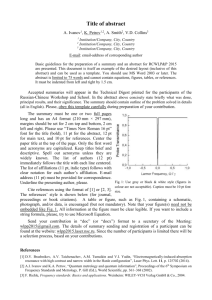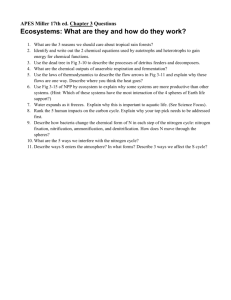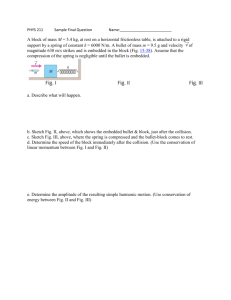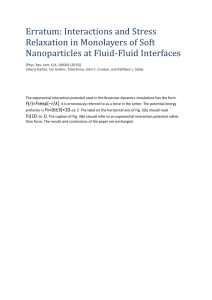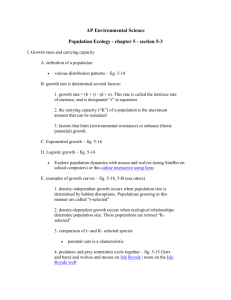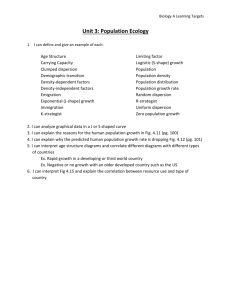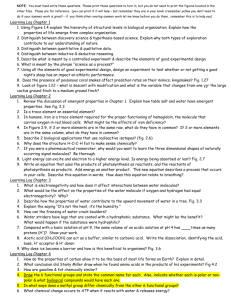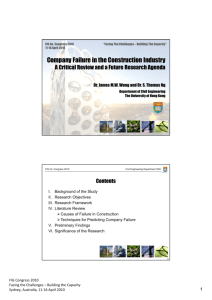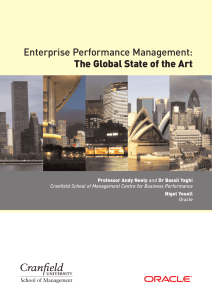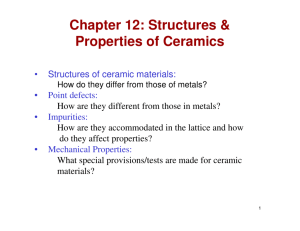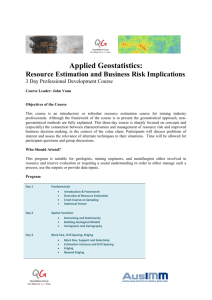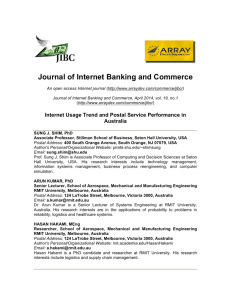wrcr20731-sup-0001-suppinfoReadme
advertisement
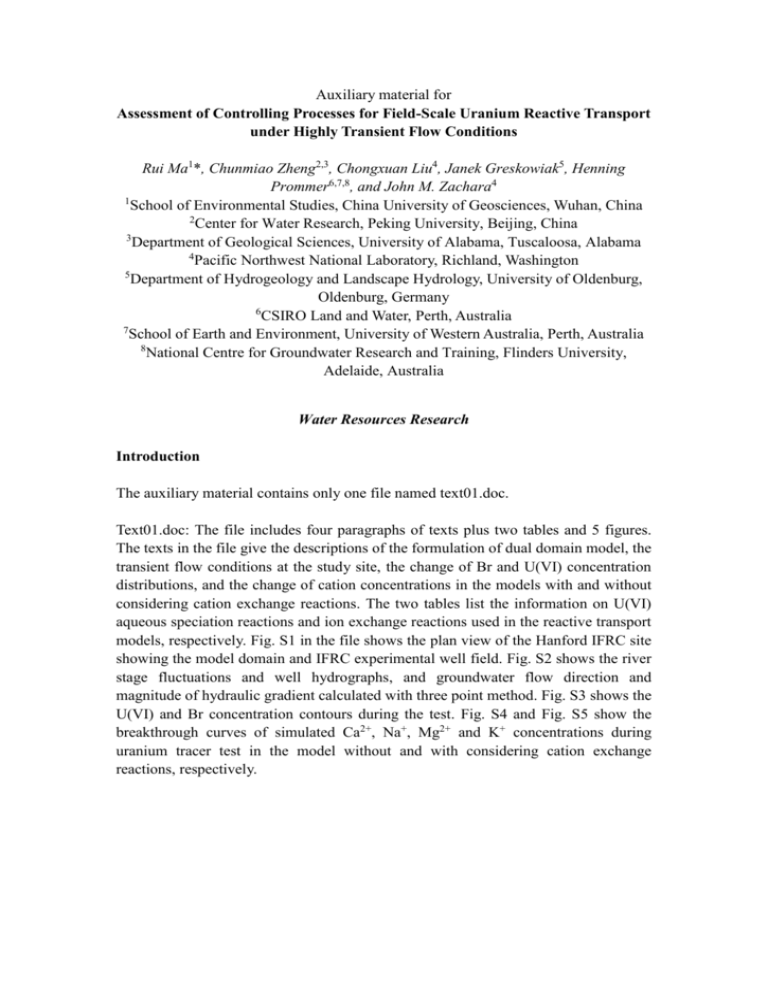
Auxiliary material for Assessment of Controlling Processes for Field-Scale Uranium Reactive Transport under Highly Transient Flow Conditions Rui Ma1*, Chunmiao Zheng2,3, Chongxuan Liu4, Janek Greskowiak5, Henning Prommer6,7,8, and John M. Zachara4 1 School of Environmental Studies, China University of Geosciences, Wuhan, China 2 Center for Water Research, Peking University, Beijing, China 3 Department of Geological Sciences, University of Alabama, Tuscaloosa, Alabama 4 Pacific Northwest National Laboratory, Richland, Washington 5 Department of Hydrogeology and Landscape Hydrology, University of Oldenburg, Oldenburg, Germany 6 CSIRO Land and Water, Perth, Australia 7 School of Earth and Environment, University of Western Australia, Perth, Australia 8 National Centre for Groundwater Research and Training, Flinders University, Adelaide, Australia Water Resources Research Introduction The auxiliary material contains only one file named text01.doc. Text01.doc: The file includes four paragraphs of texts plus two tables and 5 figures. The texts in the file give the descriptions of the formulation of dual domain model, the transient flow conditions at the study site, the change of Br and U(VI) concentration distributions, and the change of cation concentrations in the models with and without considering cation exchange reactions. The two tables list the information on U(VI) aqueous speciation reactions and ion exchange reactions used in the reactive transport models, respectively. Fig. S1 in the file shows the plan view of the Hanford IFRC site showing the model domain and IFRC experimental well field. Fig. S2 shows the river stage fluctuations and well hydrographs, and groundwater flow direction and magnitude of hydraulic gradient calculated with three point method. Fig. S3 shows the U(VI) and Br concentration contours during the test. Fig. S4 and Fig. S5 show the breakthrough curves of simulated Ca2+, Na+, Mg2+ and K+ concentrations during uranium tracer test in the model without and with considering cation exchange reactions, respectively.
